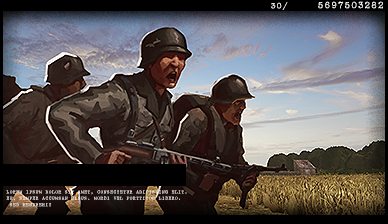

He heard a faint, muffled voice saying “This is Paris calling,” and handed the phone to AP newsman Lewis Hawkins. The main news desk phone rang at about 3:24 p.m., and Russell Landstrom picked it up. Kennedy retired to his room briefly to ponder his options, then returned to the office, where he asked his colleague Morton Gudebrod to get on the military telephone line and call the AP’s London bureau. Merrick shrugged and said, “Do as you please,” undoubtedly believing the wide-ranging censorship apparatus would prevent Kennedy from getting his story out.

Kennedy believed he had every right to release the story and told the officer he would do just that. Merrick said he had his orders and wasn’t authorized to release anything regardless of where else the news might have been announced. Officials inevitably tried to stretch that definition as far as they could at times, but Kennedy felt it was clear that the continued hold on the surrender news was purely political.Īs recounted in a posthumously published memoir, Ed Kennedy’s War, he visited the office of the chief American censor at the Scribe, Lt. The censorship regulations Kennedy and hundreds of other correspondents had followed for years were nominally in place to protect military security. Kennedy heard it in the AP’s office on the fourth floor of the Hotel Scribe and decided he had to act.įlensburg was occupied by British troops, so Kennedy was certain SHAEF had permitted the broadcast - which made sense, since the sooner German troops heard the news the less chance there was of further bloodshed. The BBC aired a translation of the announcement minutes later. Shortly after 2 p.m., German radio in Flensburg broadcast a statement from foreign minister Ludwig Schwerin von Krosigk saying the high command had “declared the unconditional surrender of all fighting German troops.”

What was to be gained by delaying release of the news? Eisenhower’s headquarters in Reims, France, were furious, as were the dozens of other reporters back at press headquarters in Paris. The correspondents who had witnessed the signing at Gen. The victorious Allied powers wanted a coordinated announcement of the surrender, with Joseph Stalin in particular pushing for a carefully orchestrated ceremony in Berlin on the afternoon of May 8. Twelve hours earlier, Kennedy and 16 other correspondents had watched representatives from Germany sign the documents that ended the war in Europe, but they had been forbidden from reporting the momentous news. on May 7, 1945, Associated Press Paris bureau chief Edward Kennedy made the decision that would change the course of his life.


 0 kommentar(er)
0 kommentar(er)
